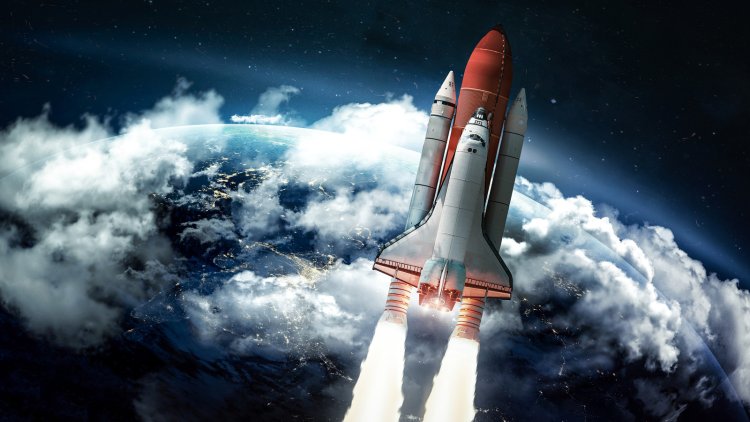The Space Race -A defining moment in human history.
The Space Race was a defining moment in human history. It was a competition between the United States and the Soviet Union to see who could achieve space exploration first. The Space Race began in 1957 when the Soviet Union launched Sputnik, the first artificial satellite.

The United States responded by launching their own satellite, Explorer 1, in 1958. The Space Race was not just about exploring space; it was also about demonstrating technological superiority and military power. Both countries saw space exploration as a way to showcase their scientific and engineering capabilities to the world. While some argue that the Space Race was a waste of resources, others believe that it led to significant advancements in technology and science.
The competition between the two superpowers pushed scientists and engineers to develop new technologies such as rockets, satellites, and computers. In conclusion, while there were certainly negative aspects of the Space Race such as its high cost, it ultimately led to significant advancements in technology and science that have benefited humanity. The legacy of the Space Race continues today with ongoing missions to explore our solar system and beyond.
The Space Race, primarily between the United States and the Soviet Union during the Cold War, marked a pivotal moment in the history of human civilization. It was a competition that extended beyond technological supremacy and highlighted the ideological differences between the two superpowers. The race aimed to demonstrate each country's scientific and military capabilities, and to secure global dominance. This essay will delve into the key motivations behind the Space Race, the major milestones that were achieved, and the long-lasting impact it had on space exploration and international relations.
One of the primary motivations behind the Space Race was the desire for military superiority. The United States and the Soviet Union regarded space as a potential battlefield. They believed that by dominating space, they would gain a strategic advantage in terms of intelligence gathering, communication, and the technology to launch nuclear weapons. This motivated both countries to invest heavily in research and development of space technology, leading to groundbreaking discoveries and advancements.
The key milestones achieved during the Space Race were triumphs of scientific and engineering prowess. The Soviet Union kicked off the race by successfully launching the world's first artificial satellite, Sputnik 1, in 1957. This event triggered a shockwave of anxiety in the United States, prompting a shift in national priority towards space exploration. The subsequent years witnessed a series of pioneering missions, including Yuri Gagarin becoming the first human to orbit the Earth in 1961 and Neil Armstrong's historic moonwalk in 1969. These achievements not only pushed the boundaries of human capability but also sparked a global fascination with space exploration.
The Space Race had a profound and enduring impact on both space exploration and international relations. Technologically, it led to significant breakthroughs such as the development of advanced rockets and satellites, which laid the foundation for modern space programs. Moreover, the competition motivated governments to invest in science education and research and development, which yielded countless benefits beyond space exploration, from medical advancements to telecommunications. On the geopolitical front, the Space Race delineated the global balance of power and influenced Cold War tensions. It highlighted the importance of soft power and propaganda, as both nations used their achievements in space to project cultural and political superiority.
In conclusion, the Space Race was an epic chapter in human history, fueled by the desire for military dominance and marked by remarkable scientific achievements. It forever transformed the realm of space exploration and left an indelible impact on international relations. By carrying humanity to new heights, it demonstrated our capacity for innovation and ingenuity. The Space Race serves as a reminder of what can be achieved when nations collaborate or compete in pursuit of knowledge and progress.










